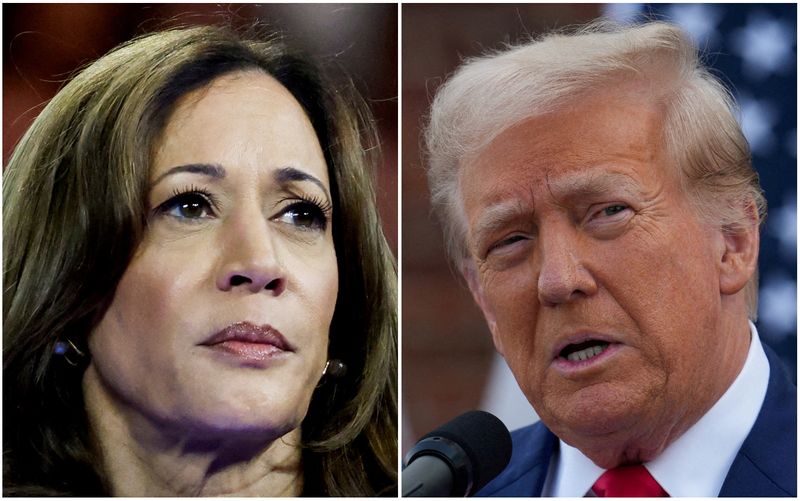Investing.com — Republican presidential candidate Donald Trump and Democratic rival Kamala Harris exchanged barbs in a fiery debate on Tuesday, clashing on everything from immigration to the economy.
But following the much-anticipated event, which came at a time when Trump and Harris are neck-and-neck in national polls, investors were left with scant details about how either hopeful would approach key topics like tariffs, taxes and regulation.
During the campaign, Trump has pledged to slash corporate taxes and assume a tougher stance on tariffs. Harris, conversely, has vowed to bump up corporate taxes. Analysts have projected that while Trump’s plan could help boost company profits, it may also fuel inflation. But they have also noted that Harris’s proposal, on the other hand, could dent corporate returns.
On the debate stage, Harris took aim at Trump’s policy of imposing high tariffs on foreign goods, arguing that it would effectively be a tax on the middle class. Trump defended the plan, saying it would not lead to higher prices for Americans, and attacked Harris for overseeing a period of elevated inflation during the Biden administration’s term.
The Chinese yuan, which had been dented by trade tensions between Washington and Beijing during Trump’s prior tenure in the White House, strengthened against the dollar.
Bets favored Harris in the immediate wake of the debate, with the current Vice President’s odds of winning the ballot increasing to 56% from 53% before the event, according to data from online prediction market PredictIt cited by Reuters. Trump’s dipped to 48% from 52%.
Here’s a look at reactions from several analysts:
TD Cowen
“This was […] not a debate about the economy. We did not have substantive discussions of the key economic issues including if the White House should play a role in setting interest rates or how tariffs may impact inflation and economic growth,”
BTIG
Analysts at BTIG said in a note to clients that Harris “won the night” and could have enhanced her appeal to undecided voters, but they flagged that the debate “will do nothing to shift the partisans on either side of the ideological spectrum.”
Wolfe Research
“We expected policy would feature in this debate in the sense that both candidates needed to talk about their agendas to accomplish their goals, but not in the sense that they would get into the weeds or announce new proposals. Sure enough, they largely highlighted the proposals they already have rolled out, although investors should take note of Trump’s continued emphasis on tariffs […] — he pointedly declined to back away from a 20% global tariff early in the debate.”
Raymond James
“In recent polling, undecided voters say they want to know more about Harris and her policies before supporting her. While we expect most polls, pundits, and betting markets to declare Harris the winner, the continued lack of specific policy details may not meet information threshold, and we continue to expect a close election.”
Citi
“Specific policy details were lacking, though the issue of tariffs once again came up as Trump continues to make this a key part of his platform. Interestingly, despite Harris discussing potentially fiscal expanding policies, yields actually moved lower as the debate progressed and Harris betting market probabilities increased. We expect this is a result of investors recognizing a Harris win is very unlikely to have a Democratic Senate, and therefore these policies are unlikely to come to fruition even if she wins the White House.”

